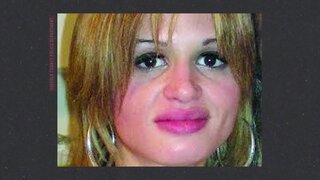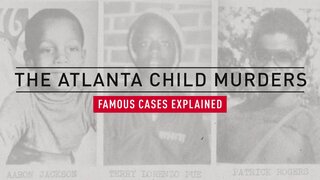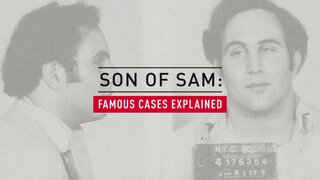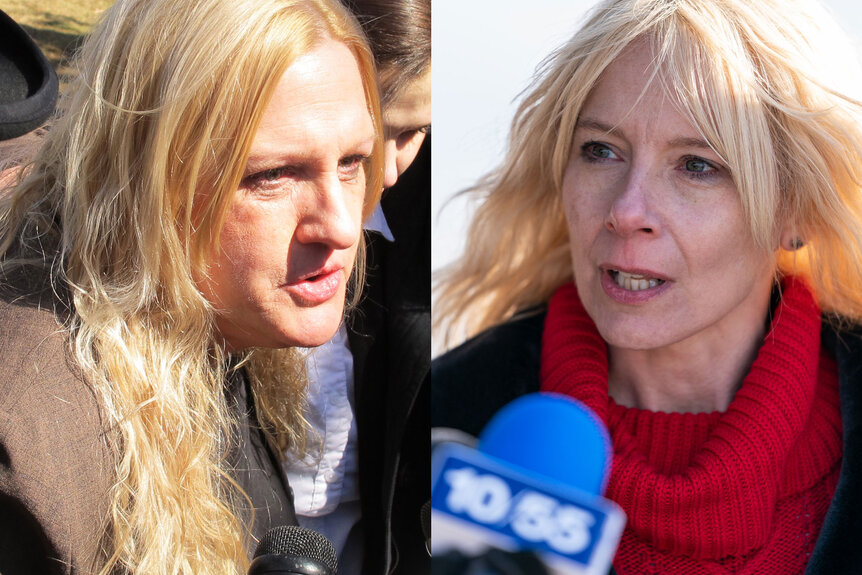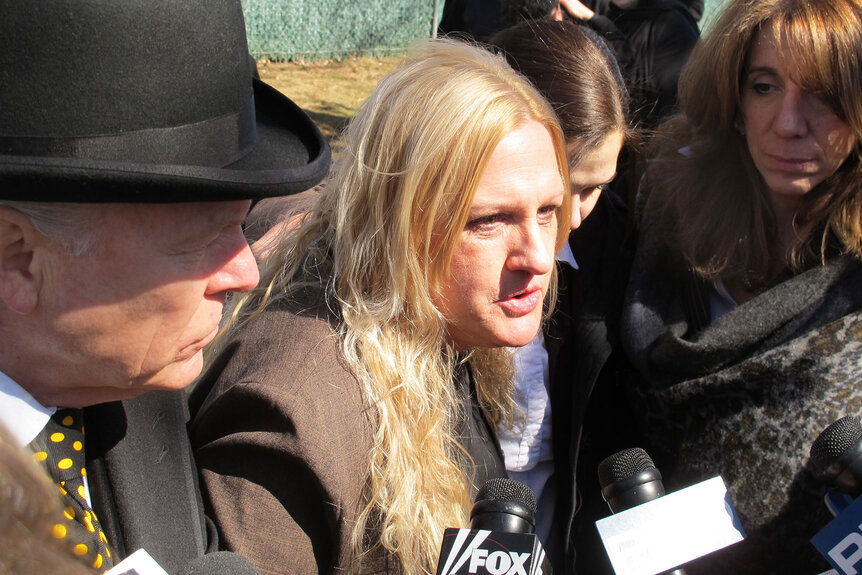Create a free profile to get unlimited access to exclusive videos, breaking news, sweepstakes, and more!
What Happened To The Real Mari Gilbert, The Grieving Mother Desperate For Answers In 'Lost Girls'?
Shannan Gilbert's disappearance led to the discovery of 10 presumed victims of the elusive Long Island Serial Killer, but her mother Mari had to battle to get police to take her death seriously.
In Netflix’s “Lost Girls,” Mari Gilbert (played by Amy Ryan) is a fighter. Not only does she dedicate herself to finding the truth about her daughter Shannan’s disappearance and death on Long Island, but she ferociously defends her daughter from people who would dismiss her case.
In real life, Mari herself suffered a tragic and premature end – murdered by another daughter suffering from mental illness.
Shannan, an aspiring singer, was using Craigslist to solicit sex work when she vanished in 2010 while visiting a client on Long Island. Before she went missing, she made a panicked call to 911 in which she allegedly screamed “They’re trying to kill me!” according to PIX11.
As police searched for her, investigators found the remains of four women in weedy areas along Gilgo Beach. Over the course of the next several months, even more bodies were discovered, bringing the total number to 10 people. Shannan's remains were not among those initially discovered and wouldn't be located until about a year and a half after she vanished.
Police believe the 10 homicides are linked and suspect they may be the the work of a serial killer or killers. But they haven't yet determined if Shannan was even murdered. Police have previously theorized that Shannan may have been the victim of an accidental drowning, according to NBC New York. The Suffolk County Police Department told Oxygen.com that a medical examiner has ruled Shannan's cause of death to be inconclusive.
Several of the victims were sex workers like Shannan. In the film, police talk about the victims in demeaning and uncaring ways, but Mari's rough-around-the-edges character doesn't accept that; she confronts police officials and advocates for her daughter and other victims as she and the other families form something of a sisterhood.
Robert Kolker, author of “Lost Girls: An Unsolved American Mystery,” which served as a basis for the movie, told Oxygen.com that the real Mari "was a naturally combative person."
This boldness ended up being beneficial, as Kolker said that Mari was willing to question the police in a way that other victims’ relatives feared doing.
“She was the first among them to be really loud about the stigma [of sex work] affecting the police work,” he said.
Other families were worried that if they spoke up, they'd alienate police and potentially compromise the investigation, Kolker explained. But Mari “made it harder for the police to minimize what was going on and it forced everyone in authority there to be more responsive and to make it clear that they were still working," the author told Oxygen.com.
Melissa Cann, the sister of Maureen Brainard-Barnes, who was one of the early victims found during the search for Shannan, called Mari "very driven."
"Not only did she care about Shannan but she also cared about the other victims, including Maureen," Cann said. "She also cared about us [victims' families] and what we were going through."
The movie also depicts Mari as struggling with guilt over putting Shannan into foster care when she was a child. Shannan had grown up mostly in the welfare system and had an unstable upbringing, according to both Rolling Stone and the family's lawyer, John Ray.
In fact, in contrast to Mari's depiction in the film as a tireless champion for Shannan, Ray disputed how involved she actually was.
"It’s almost to say that she was incidental to the investigation," he told Oxygen.com. "She wasn’t a crusader.”
Cann, too, told Oxygen.com that the film's portrayal of Mari as being "in the forefront" wasn’t 100 percent true. She said that Mari contributed but noted that "all the families" banded together to advocate on the victims' behalf.
"We all formed and reached out to each other and wanted to know each other and support each other because ultimately we were this type of sisterhood that was unspoken because you really couldn’t talk about this case to other people," she said.
Ray acknowledged that Mari did go looking for Shannan after she vanished, but stressed that, in his view, it was Shannan's sisters "who really put the time in and devoted themselves" to finding and defending their sister.
However, it was Mari who hired Ray around the time Shannan’s remains were found and together they accused police in 2011 of mishandling the case and asked for the FBI to take over the investigation, the New York Daily News reported at the time.
Ray alleged police corruption in multiple interviews with Oxygen.com. The Suffolk County Police Department told Oxygen.com that they "do not comment on the actions of prior administrations."
Additionally, Mari and Ray filed a civil suit against Dr. Peter Hackett, who lived in the neighborhood where Shannan disappeared. He called Mari's house following Shannan’s disappearance, claiming he "ran a home for wayward girls and that Shannan was under his care," Ray told Vice in 2016.
Hackett initially denied making the call, but later admitted it after phone records confirmed the calls took place. He denied interacting with Shannan the night she died, or providing her with any medical treatment. Police have said they don't consider Hackett a suspect in either Shannan’s death and the slayings that have been attributed to the Long Island Serial Killer, according to The Long Island Press.
Kolker told Oxygen.com that Mari used the civil suit against Hackett “to get people deposed and to get answers and to advocate for a second autopsy" with the aim of getting Shannan's death reclassified as a homicide.
An privately commissioned autopsy report, written by Michael Baden – a former chief medical examiner for New York City who has become a high-profile forensic pathologist for hire – found no drugs in Shannan's system. Baden also claimed that Shannan's larynx and "two greater horns" from her hyoid were missing.
"Those structures, the larynx and the hyoid bone, are often fractured during homicidal manual strangulation,” Baden's autopsy, provided to Oxygen.com by Ray, stated.
However, it also noted that there was "insufficient information" to determine a definitive cause of death.
Ray has long disputed the accidental death claim and has spent years trying to obtain the controversial 911 calls — one made by Shannan, one made by her client the night she vanished, and two from the client's neighbors — that he thinks could point to foul play. At a recent press conference on the case, Suffolk Police Commissioner Geraldine Hart said the 911 calls are part of an ongoing investigation and noted that it’s unclear if Gilbert died of natural causes or if she was killed in a criminal act. The department is currently fighting a court order to release the calls.
Amid the mystery surrounding Shannan's death, Mari was dealing with other family issues. She “became increasingly involved in trying to help out [her daughter] Sarra, who was becoming more and more unstable and having more and more psychotic breaks," Kolker said.
Sarra had schizophrenia and had been hospitalized seven times in her life, but following Shannan's death, her mental health issues appeared to escalate.
Mari tried “really, really hard to help Sarra,” Kolker said.
She also ended up having to take care of her grandson, Sarra's son. Sarra drowned a puppy in front of the boy, according to later testimony by Sarra’s sister, Stevie Smith, the Daily Freeman reported. Sarra testified that when she killed the puppy, she believed she was killing the rapper Eminem, according to the Times Herald-Record.
Mari ended up getting temporary custody of Sarra's son.
Despite issues with her daughters, Ray told Oxygen.com he felt Mari had redeemed herself in the eyes of most of her children around this time.
“It was quite a redemptive period for her actually because in the past she’d been accused of sometimes being neglectful of her children but she really stepped up when it came from Sarra,” Kolker added. "This is stuff I’ve heard from people who weren’t even predisposed to like her [Mari]. They all said something really pivoted with her in her final years.’”
Ray noted to Oxygen.com that Mari herself had a "rough life" and endured her own tough upbringing.
What happened to Mari in the end?
Mari herself was tragically murdered by her daughter Sarra in 2016.
Sarra had been hospitalized for a psychotic break and wasn't receiving her monthly injection of the antipsychotic drug Haldol, which is used to treat schizophrenia, Kolker told Oxygen.com. He added that Sarra had been hearing voices and “was convinced her mother was evil" when she killed her.
The wounds Mari suffered were horrific. Sarra stabbed her 227 times with a five-inch kitchen knife and beat her with a fire extinguisher, the Daily Freeman reported in 2017.
Ray told Oxygen.com that Sarra also also sprayed fire extinguisher foam into Mari's mouth and nearly beheaded her mother.
Mari was 52 years old.
Sarra was convicted in 2017 and was sentenced to at least 25 years behind bars.
"Lost Girls" begins streaming on Netflix March 13.
Reporter Jill Sederstrom contributed to this report.
